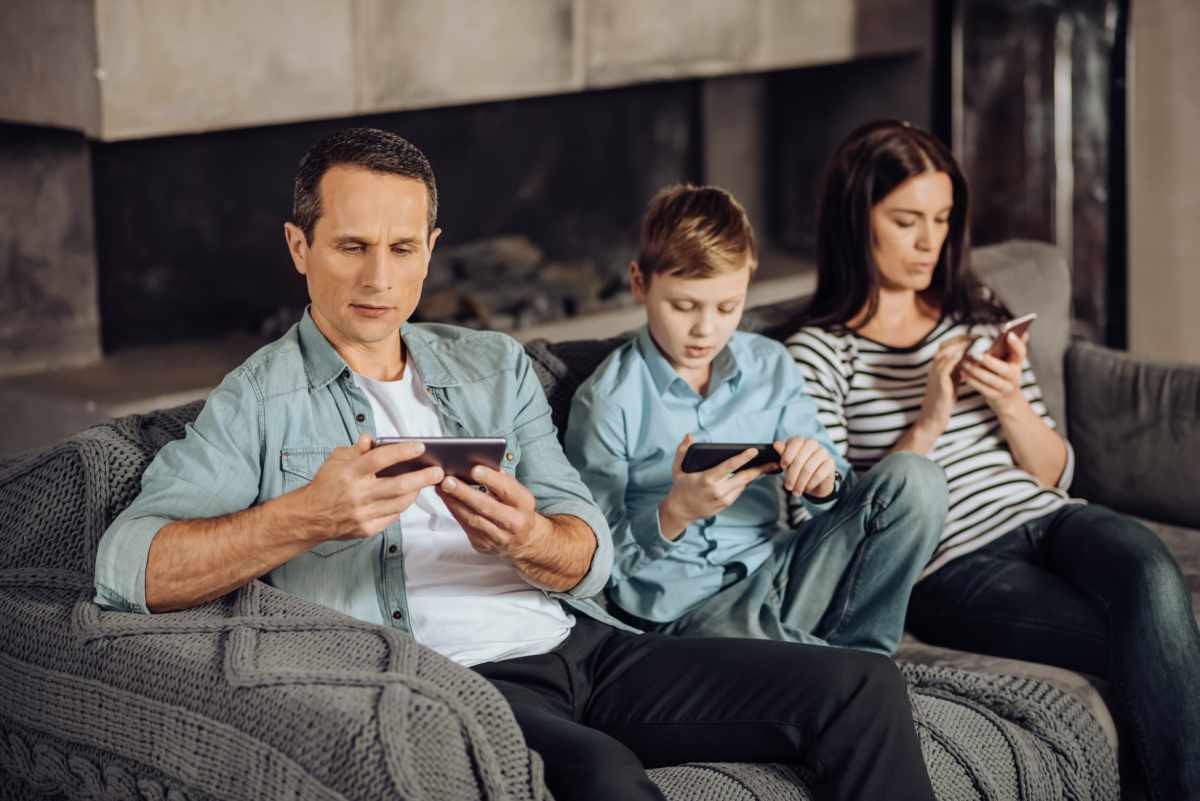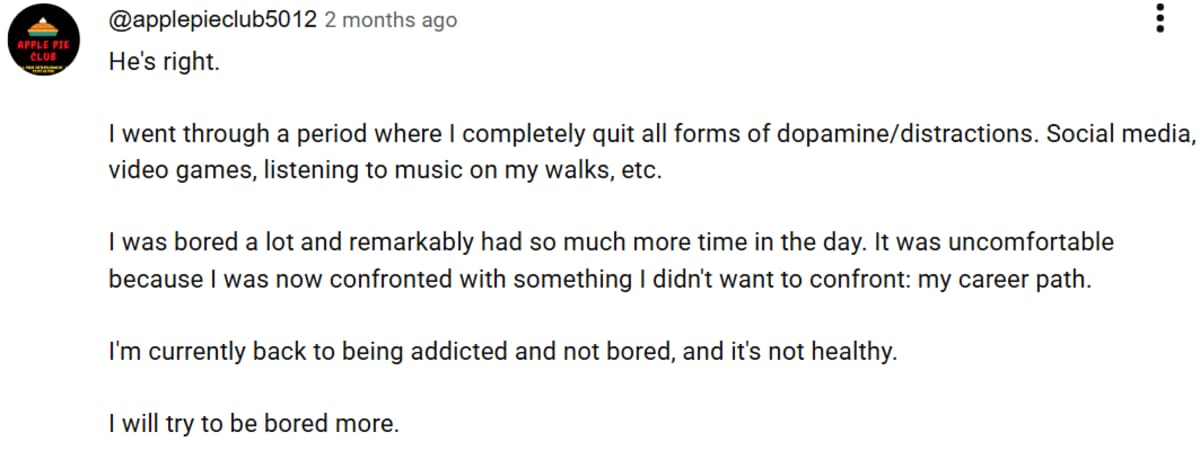Harvard scientist explains why it's essential that we embrace boredom
'You will be more depressed if you never are bored...'

Do you often find yourself getting "bored" at home? Bored because you're not on your phone, playing games, texting, or doomscrolling in general? Well, Arthur C. Brooks, Harvard happiness researcher, says it's important. In a detailed video, he explained why boredom is important for our mental health and that we would be more depressed if we eliminated it. The video shared on the Harvard Business Review's (@harvardbusinessreview) YouTube channel has 10 million views online.

"You will be more depressed if you never are bored," Brooks announced. He explained what boredom really means and how it is the opposite of what we often perceive it as. "Boredom is a tendency for us not to be occupied otherwise cognitively, which switches over our thinking system to use a part of our brain that's called the default mode network," Brooks said. He explained that the default mode network in our brain turns on when we have nothing to think about. More often than not, this happens when we are sitting idle, doing nothing, and our phones are far away from us. Brooks then recounted an experiment done by Dan Gilbert, his colleague in the psychology department at Harvard, who instructed people to sit in a room for 15 minutes and do nothing. "There was nothing in the room to do, except there was a button in front of them that they could push, and if they did, they gave themselves a painful electric shock," he said. And guess what? A majority of the participants gave themselves a shock because they were bored with doing nothing. Brooks explained that boredom feels like torture because the default mode network makes us think about uncomfortable questions that we often try to escape. "One of the reasons we have such an explosion of depression and anxiety in our society today is because people actually don't know the meaning of their lives," Brooks said in the interview from August 26.
Since we hate boredom, Brooks explained, we have found a way to eliminate it with phones. To avoid uncomfortable questions, we use phones as a distraction. "If every time you are slightly bored, you pull out your phone, then it's going to get harder and harder for you to find meaning, and that's the recipe for depression and anxiety," Brooks explained. Moving on, he urged people to keep devices away for at least 15 minutes daily and see their lives change. Brooks said it would not only allow us to be more creative but also wouldn't let us easily get bored by ordinary things. Brooks said being bored can also make us happier. The Harvard scientist confessed that he also follows a "no-device" policy after a certain point daily. Neither does he sleep with his phone, nor does he use it during meal times with family. Brooks also shared how people often fear that if they aren't always on their phone, then they might miss something important, but restricting the usage is the key. "Put down your phones. You need more meaning in your life," he concluded.

People loved what Arthur C. Brooks said about boredom and realized how they need to keep themselves away from distractions. For instance, @andyhuang5987 wrote, "This explains why all my best creative ideas come to mind while I take a shower, because that is the only period of time when I take my eyes off the screen."


@laurenwhite8194 confessed, "This guy is literally outlining just what I naturally WANT to do. I hate noise, the radio, audiobooks, doomscrolling, and needing to distract myself all the time. I spent my childhood running through the woods and reading. Being bored was a way of life, and in so doing, I learned that boredom isn’t even real. Once you get past the initial barrier of being alone with yourself, you realize how peaceful and lovely it is to just be you, with you."
You can follow Harvard Business Review (@harvardbusinessreview) on YouTube for expert opinions.
More on Scoop Upworthy
Expert reveals the underlying cause of change in family dynamics due to mobile overconsumption
Aaron Paul says one question from his daughter showed him his phone was sabotaging his relationships
Julia Roberts' 'simple rules' of parenting prevented her children from becoming phone-obsessed

 Share on Facebook
Share on Facebook





